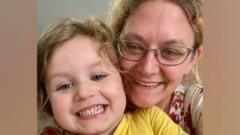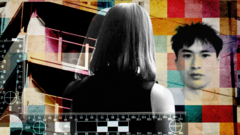A study from the University of British Columbia reveals that people underestimate the goodwill of strangers, as showcased by several heartwarming reader anecdotes of kindness. From teenagers returning candy at Halloween to a young man assisting an elderly couple on the motorway, these stories emphasize the positive actions of strangers that can restore faith in humanity.
Acts of Kindness: Strangers Brighten Lives on Halloween and Beyond

Acts of Kindness: Strangers Brighten Lives on Halloween and Beyond
Readers share heartwarming stories of unexpected generosity, highlighting the hidden goodness in society following a study on kindness.
Strangers have been spotlighted recently for their kindness, as readers shared their personal experiences that contrast with negative stereotypes. A study conducted by the University of British Columbia indicated that people have a tendency to underestimate the number of good deeds performed by others. The research involved deliberately losing wallets in order to analyze the rates of their return, which showed that almost double the expected number were handed back.
One such illuminating story was shared by Athena Rowley, a 40-year-old Ipswich resident, who recounted an experience from last Halloween. She and her four-year-old son, Robert, had been trick-or-treating, during which Robert dressed up as his favorite CBeebies character, Hey Duggee. After filling their bucket with sweets, they returned home. A group of older children, including six teenagers donned in costumes, came to the door requesting candy. In a generous act, Robert offered to share his remaining sweets and hugged each of them. Shortly after, the very same teenagers returned with bags of candy for Robert, showing a kind-hearted spirit that Rowley commended, stating, “It was absolutely wonderful because teenagers get such a bad rap nowadays.”
An uplifting view of young people was echoed by Jocelyn Tress, 88, and her husband Mark, 89. While on their way to the airport, they suffered a punctured tire on the M25. Fearing they would miss their flight, Jocelyn and Mark called for roadside assistance. To their surprise, a young man in a van noticed them and turned around to provide help. He quickly changed the tire, refusing to accept any payment, stating, “When I went past and saw you were in trouble, I thought, suppose they were my granny and grandpa?” Jocelyn stated that most young individuals are incredibly helpful, highlighting that kindness can bridge generational gaps.
Older acts of kindness also surfaced, such as the experience narrated by Sarah Marten, 66, from 25 years ago. While shopping for ballet attire, she faced an unfortunate moment where her bank card was declined. A gentleman behind her offered to cover the costs without expecting reimbursement. This generous moment left a lasting impression on Sarah, who described him as her "angel" during a challenging day. The benevolent act became a cherished memory that was shared with her children, now grown and successful musicians.
These anecdotes underscore the notion that kindness exists in our communities more than we may realize. As illustrated by these reader experiences and the study’s findings, it is clear that genuine acts of compassion, whether from teenagers, young adults, or strangers of any age, reaffirm faith in the basic goodness of humanity.


















